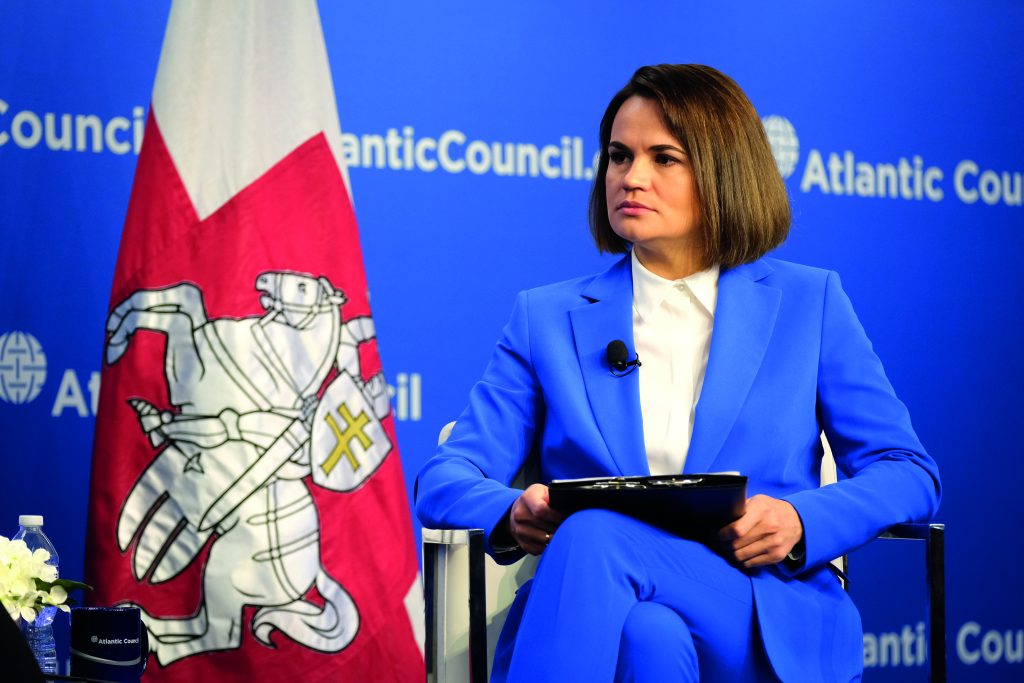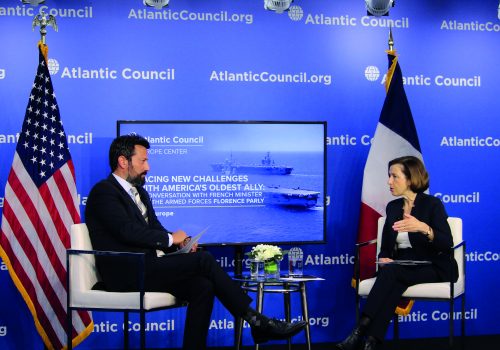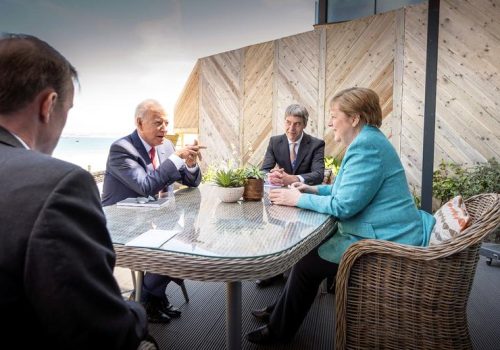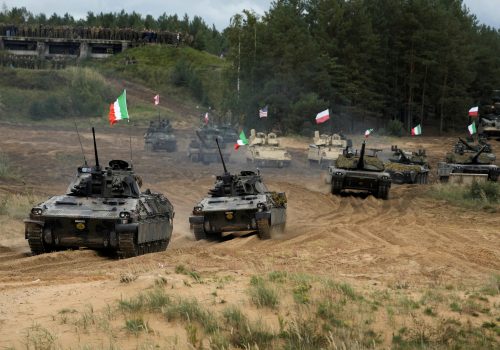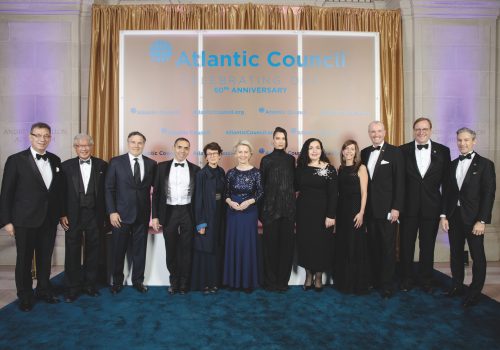Stopping aggression and defending peace, democratic values, and prosperity across Eurasia.
The Eurasia Center’s mission is to promote policies that encourage stability, democratic values, and prosperity in Eurasia. A democratic, prosperous, and stable Eurasia is a core interest for the United States and plays into the Atlantic Council’s focus on great-power competition.
“More than anything, 2021 represented the buildup to authoritarian Russia’s full-scale military assault on democracy in Europe.”
John Herbst, Eurasia Center Senior Director Ambassador
For the Eurasia Center, the year 2021 was marked by dramatic changes that brought renewed urgency to its mission. Ukraine faced serious challenges both internally within its domestic reform agenda and externally as Russia’s war threatened to escalate to dramatic new heights. Russia’s domestic opposition and civil society also faced unprecedented crackdowns that restricted alternatives to Russian President Vladimir Putin’s authoritarian system.
The Belarusian democratic opposition movement continued to work toward a new future for the country, even as Belarusian dictator Aleksandr Lukashenko extended his repression to the world stage with dramatic assaults on international norms and those standing against him. The South Caucasus faced down the multiple challenges posed by the ongoing COVID-19 pandemic, internal political turmoil, and the aftermath of 2020’s war between Azerbaijan and Armenia.
Throughout the year, the Eurasia Center hosted more than one hundred events, published seven major reports and issue briefs, and enhanced its network of partnerships in Washington, Kyiv, and across Europe and Eurasia. Despite the coronavirus pandemic, the center was able to stage essential trips to Ukraine to work with its partners. The center also leveraged hybrid event formats for major convenings, including one that hosted Belarusian democratic opposition leader Sviatlana Tsikhanouskaya for her first public event with a US-based think tank. In coordination with Tsikhanouskaya’s summer 2021 visit to Washington, the Eurasia Center also helped to pave the way for the launch of the bipartisan Congressional Friends of Belarus Caucus.
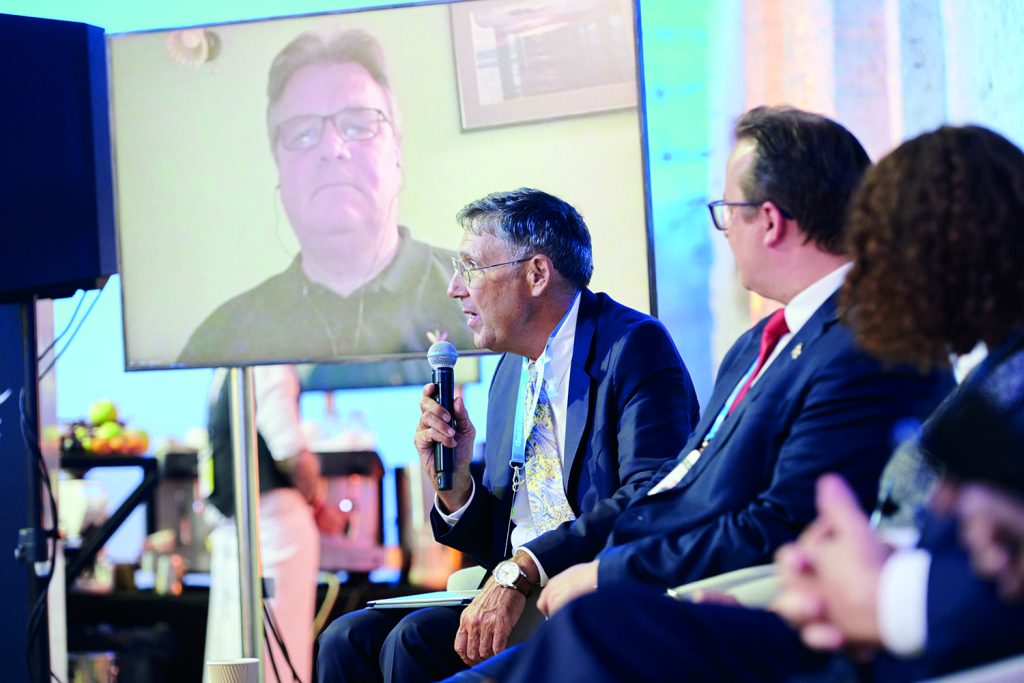
The center’s core focus continues to be rallying global support for Ukraine’s future and challenging the aggressive, revanchist policies of the Kremlin. In 2021, challenges to Ukraine were more pressing than ever and the Eurasia Center worked both publicly—through events and major statements—and privately to hold Kyiv to its commitments to political reform while continuing to rally global support for Ukraine in the face of Russian aggression. As the year drew to a close, the Eurasia Center took the lead on a high-profile public letter calling for an enhanced US strategy for dealing with the Kremlin-created crisis, which made an impact at the highest levels of the US government. The letter was followed up by a delegation of high-level experts and former US officials to Kyiv at the start of the New Year.
In January 2021, the dramatic arrest of Russian opposition leader Alexei Navalny brought worldwide attention to Putin’s domestic repressions. The Eurasia Center produced a groundbreaking report titled Russia after Putin: How to Rebuild the State, which laid out a vision for what Russia’s future could look like with deep reforms to the system and increased legitimacy for the Russian people. The report went viral in Russia and was featured in a variety of outlets, including both Russian state TV and opposition programming, drawing in more than 1.5 million views in Russia—made only more impactful by the fact that the Atlantic Council’s website is banned in Russia.
The Eurasia Center also welcomed its fourth class of Eurasia congressional fellows. The cohort included thirteen fellows from both Democratic and Republican offices, as well as committee staff who connected with experts to learn about key Eurasia issues.
Through the UkraineAlert blog, the Eurasia Center continued to be a top destination for leading voices and policymakers looking to reach English-speaking audiences on issues related to Ukraine. Two of the top blogs in 2021 came from Ukrainian Foreign Minister Dmytro Kuleba, asking “Why is Ukraine still not in NATO?” and from Ukrainian Defense Minister Oleksiy Reznikov declaring that “Europe’s future will be decided in Ukraine.” The BelarusAlert blog was also codified as a consistent fixture of the Atlantic Council’s lineup and will serve as an essential source of regular news and analysis on a space with limited coverage.
Vision for 2022
It is clear that 2022 will require the Eurasia Center to react swiftly to urgent challenges in the region, especially as the world watches the consequences of Russia’s preparations in 2021 for a full-scale invasion of Ukraine. The Eurasia Center will continue to amplify key voices to shape the conversation in and around Ukraine while rallying global support for the country in the face of Kremlin aggression, convene top leaders to understand the future of Russia and the wider Eurasia region, and promote stability, prosperity, and democratic values across the Eurasia space.
Next
Read the full report
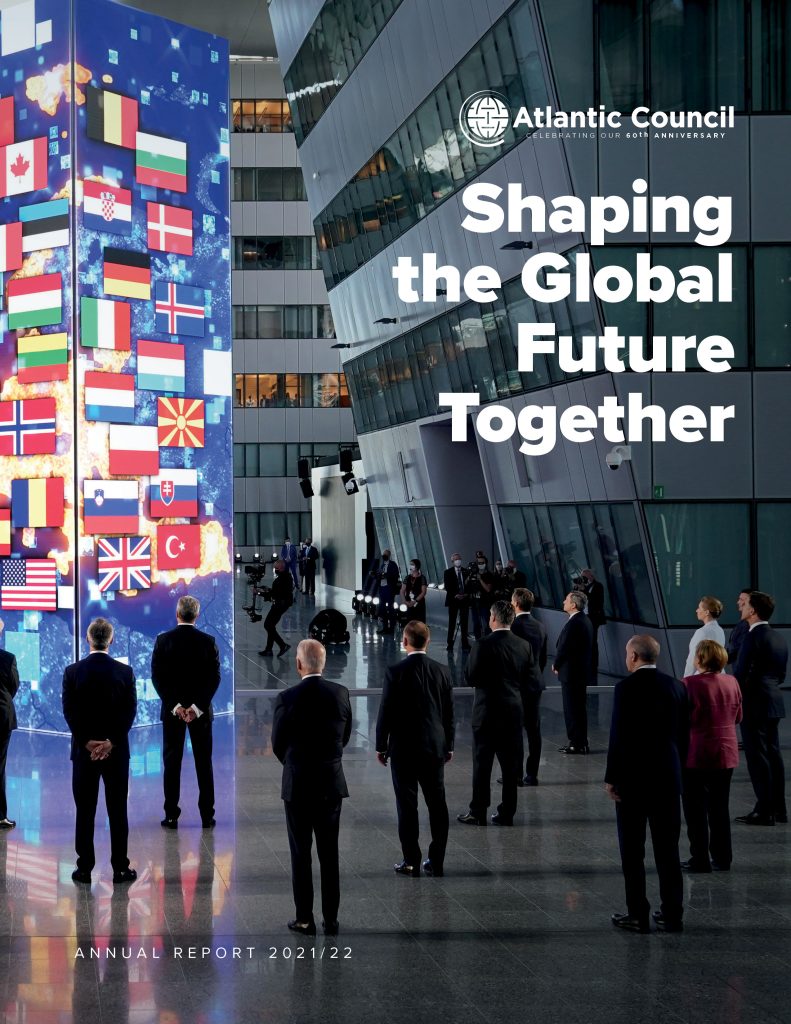
Annual Report 2021/2022
The Atlantic Council has never been more robust operationally, substantively, or financially in its sixty-year history. This comes at a time when our work has never been more crucial in the face of complex, daunting, and worldwide challenges.
Image: Leader of the Belarusian democratic opposition Sviatlana Tsikhanouskaya speaks at an Atlantic Council Front Page event on the challenges facing the democratic movement in Belarus. JASPER GILARDI
